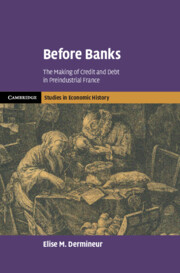Refine search
Actions for selected content:
133 results
3 - Social Chilling Effects
- from Part II - A New Understanding
-
- Book:
- Chilling Effects
- Published online:
- 20 November 2025
- Print publication:
- 20 November 2025, pp 41-48
-
- Chapter
- Export citation
5 - What Are the Perils of Voluntary Compliance?
-
- Book:
- Can the Public be Trusted?
- Published online:
- 11 October 2025
- Print publication:
- 30 October 2025, pp 121-142
-
- Chapter
-
- You have access
- Open access
- HTML
- Export citation
Conspiracy Stories
-
- Journal:
- Canadian Journal of Philosophy , FirstView
- Published online by Cambridge University Press:
- 14 October 2025, pp. 1-19
-
- Article
-
- You have access
- Open access
- HTML
- Export citation
Vaccine misinformation and social determinants of vaccine intentions during a pandemic
-
- Journal:
- Behavioural Public Policy , First View
- Published online by Cambridge University Press:
- 18 September 2025, pp. 1-20
-
- Article
-
- You have access
- Open access
- HTML
- Export citation
Risk aversion and social influence
-
- Journal:
- Experimental Economics ,
- Published online by Cambridge University Press:
- 15 September 2025, pp. 1-26
-
- Article
-
- You have access
- Open access
- HTML
- Export citation
Chapter 3 - Reading between the Lines
- from Part II - Understanding Cultural Norms and References
-
- Book:
- Lost in Automatic Translation
- Published online:
- 08 October 2025
- Print publication:
- 21 August 2025, pp 39-50
-
- Chapter
- Export citation
How Mainstream Politicians Erode Norms
-
- Journal:
- British Journal of Political Science / Volume 55 / 2025
- Published online by Cambridge University Press:
- 11 August 2025, e105
-
- Article
-
- You have access
- Open access
- HTML
- Export citation
Chapter Nine - Conclusion
- from Part II
-
- Book:
- From Manners to Rules
- Published online:
- 29 August 2025
- Print publication:
- 07 August 2025, pp 308-328
-
- Chapter
- Export citation
Re-Stigmatizing the Radical Right: A One-Way Street?
-
- Journal:
- Journal of Experimental Political Science , First View
- Published online by Cambridge University Press:
- 31 July 2025, pp. 1-12
-
- Article
-
- You have access
- Open access
- HTML
- Export citation

Before Banks
- The Making of Credit and Debt in Preindustrial France
-
- Published online:
- 27 June 2025
- Print publication:
- 23 January 2025
Gender differences in the self-promotion of prosocial behaviour: exploring the female modesty constraint
-
- Journal:
- Experimental Economics / Volume 28 / Issue 1 / January 2025
- Published online by Cambridge University Press:
- 28 April 2025, pp. 1-21
-
- Article
-
- You have access
- Open access
- HTML
- Export citation
Discounting extreme positions: party normalization and support for the far right
-
- Journal:
- Political Science Research and Methods , First View
- Published online by Cambridge University Press:
- 16 April 2025, pp. 1-9
-
- Article
-
- You have access
- Open access
- HTML
- Export citation
From AC to me: harnessing social norms to encourage personal cooling in Chinese offices
-
- Journal:
- Behavioural Public Policy , First View
- Published online by Cambridge University Press:
- 04 April 2025, pp. 1-27
-
- Article
-
- You have access
- Open access
- HTML
- Export citation
Peer punishment in teams: expressive or instrumental choice?
-
- Journal:
- Experimental Economics / Volume 15 / Issue 2 / June 2012
- Published online by Cambridge University Press:
- 14 March 2025, pp. 241-259
-
- Article
- Export citation
‘Everybody’s doing it’: on the persistence of bad social norms
-
- Journal:
- Experimental Economics / Volume 23 / Issue 2 / June 2020
- Published online by Cambridge University Press:
- 14 March 2025, pp. 392-420
-
- Article
- Export citation
Is it a norm to favour your own group?
-
- Journal:
- Experimental Economics / Volume 18 / Issue 3 / September 2015
- Published online by Cambridge University Press:
- 14 March 2025, pp. 491-521
-
- Article
- Export citation
Efficiency versus gender roles and stereotypes: an experiment in domestic production
-
- Journal:
- Experimental Economics / Volume 23 / Issue 1 / March 2020
- Published online by Cambridge University Press:
- 14 March 2025, pp. 181-211
-
- Article
- Export citation
Using social norms to explain giving behavior
-
- Journal:
- Experimental Economics / Volume 26 / Issue 5 / November 2023
- Published online by Cambridge University Press:
- 14 March 2025, pp. 1115-1141
-
- Article
-
- You have access
- Open access
- HTML
- Export citation
On the interpretation of bribery in a laboratory corruption game: moral frames and social norms
-
- Journal:
- Experimental Economics / Volume 19 / Issue 1 / March 2016
- Published online by Cambridge University Press:
- 14 March 2025, pp. 240-267
-
- Article
- Export citation
The coordinating power of social norms
-
- Journal:
- Experimental Economics / Volume 25 / Issue 1 / February 2022
- Published online by Cambridge University Press:
- 14 March 2025, pp. 1-25
-
- Article
- Export citation
